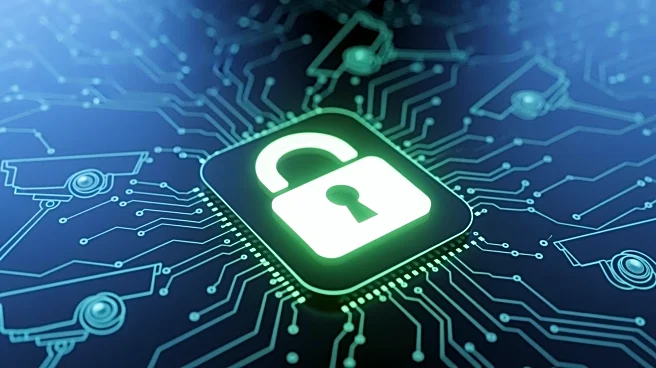What's Happening?
Authorities in Gujarat, India, have uncovered a significant cybercrime operation involving the hacking and sale of CCTV footage from various locations, including maternity wards. The investigation revealed
that hackers accessed video surveillance systems across multiple states, selling sensitive footage on platforms like Telegram. The police have arrested eight individuals from different regions, including Maharashtra and Gujarat, who are currently in judicial custody. The case involves serious charges such as violating privacy, publishing obscene material, and cyber terrorism. The hacked videos were reportedly sold for prices ranging from 800 to 2,000 rupees, with some channels offering live feeds via subscription.
Why It's Important?
This cybercrime case highlights the vulnerabilities in surveillance systems, raising concerns about privacy and security. The widespread use of CCTV cameras in India, often managed by staff lacking cybersecurity training, makes them susceptible to exploitation. The incident underscores the need for improved security measures and regulations to protect sensitive data. It also serves as a warning to other countries, including the U.S., about the potential risks associated with poorly secured surveillance systems. The case could prompt global discussions on cybersecurity standards and the ethical implications of surveillance technology.
What's Next?
As the investigation continues, authorities may implement stricter regulations and security protocols for surveillance systems. There could be increased pressure on manufacturers to enhance the security features of their products and educate users on safeguarding their systems. The case might also lead to international cooperation in tackling cybercrime, as similar vulnerabilities exist worldwide. Stakeholders, including government agencies and cybersecurity experts, are likely to advocate for stronger policies to prevent such breaches in the future.
Beyond the Headlines
The ethical implications of surveillance technology are significant, as the case reveals how easily privacy can be compromised. It raises questions about the balance between security and individual rights, and the responsibility of manufacturers and users in protecting sensitive information. The incident may lead to broader discussions on the role of surveillance in society and the need for transparent policies that safeguard privacy while ensuring security.










